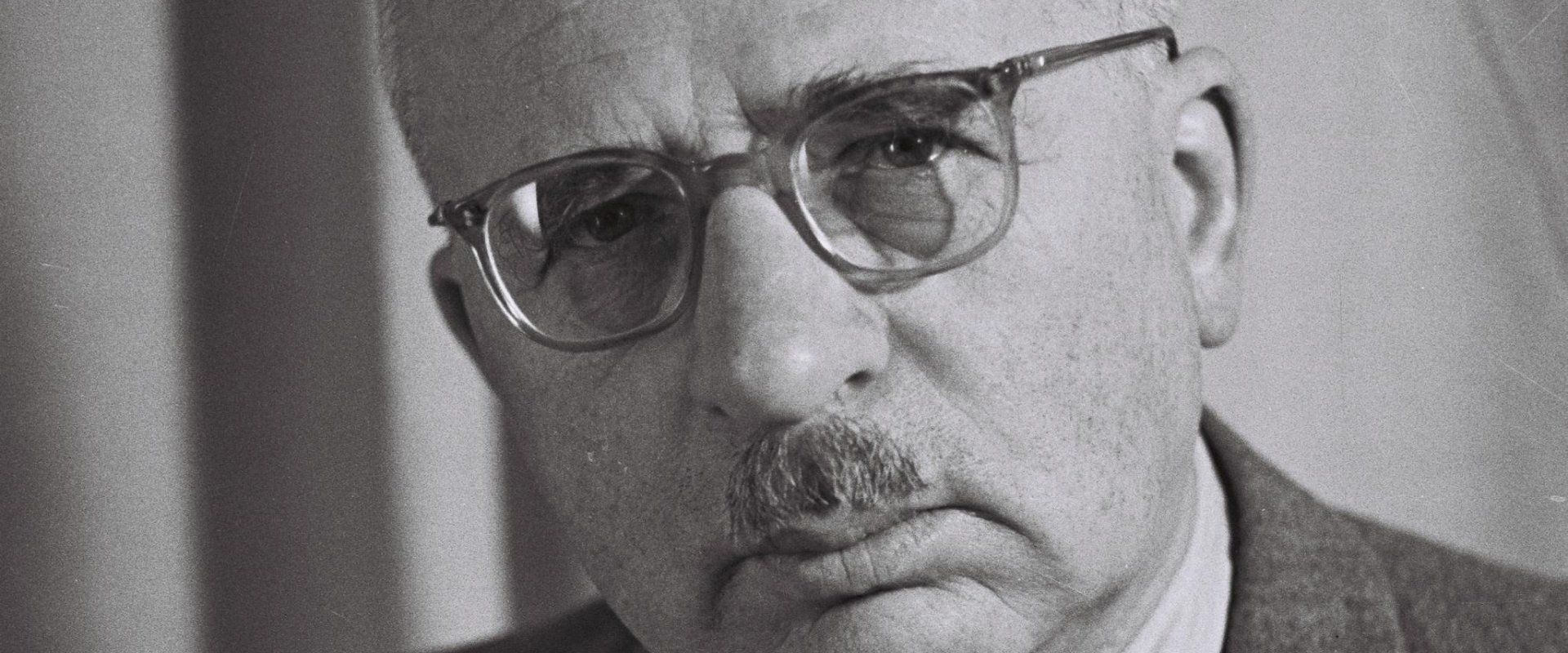Pinchas Rosen
- 21:58
- 2023

Pinchas Rosen, or Felix Rosenblüth (as he was called in his youth), was born in Berlin in 1887, and grew up in a wealthy family on the Messingwerk estate, some 50 kilometers away. Like nearly all the other Jews in this enclave, Rosen was raised strictly Orthodox. He focused on piano and chess but lacked a true passion until, at the age of 16, a friend lent him a copy of Herzl’s novel Altneuland.
From that point on, Zionism burned within him. The goal of creating a utopian, egalitarian society in the Land Israel, as Herzl had imagined, became his life’s mission.
After being wounded in WWI, Rosen became Chairman of the Zionist Federation of Germany, and subsequently moved to Mandatory Palestine in 1923. There, he founded the mostly German-Jewish Aliya Hadasha Party and was elected as its representative to Moetzet HaAm. In fact, not only did he sign the Declaration of Independence, but it was he who commissioned the writing of the text from Mordechai Beham, a young Tel Aviv-based lawyer, in April 1948.
Following the establishment of the State, Rosen – a level-headed centrist – served as Minister of Justice in eight of Israel’s first nine cabinets. In addition, he turned down offers to be elected Israel’s President on not one, not two, but three separate occasions.
As a yekke, he was on the fringe of the mostly Eastern European political gestalt, but being Ben-Gurion’s close and trusted ally, meant that he played a major role in shaping the currently controversial Judicial Selection Committee, as well as the Supreme Court itself, which – during the first few decades of the State’s existence – was heavily populated by those capable of properly pronouncing an umlaut.
Throughout his time in office, he sought to advance a progressive agenda, seeking to strip the rabbinical courts of their judicial power, and pushing, repeatedly, for Israel to adopt a constitution.
When he retired from the Knesset in 1968, he lamented the lack of a single binding document, noting that it would “serve as a blockade against extreme expressions of parliamentary authority.”
In 1973 he was awarded the Israel Prize for his contributions to Israeli jurisprudence, and five years later, in May 1978, he passed away at the age of 91.
Pinchas Rosen
The thirty-seven people who signed Megillat Ha’Atzmaut on May 14, 1948, represented many factions of the Jewish population: there were revisionists and Labor Party apparatchiks; capitalists and communists and socialists; kibbutznikim, moshavnikim and city-folk; charedi rabbis and atheists.
Over the course of the past several months, our team has diligently tracked down the closest living relative of each one of these signatories, and interviewed them. We talked about their ancestors and families, about the promise of the Declaration, the places in which we delivered on that promise, the places in which we exceeded our wildest dreams, and also about the places where we fell short.
And it is through these descendants of the men and women who – with the strike of a pen – gave birth to this country of ours, that we wish to learn something about ourselves.
Today we’ll meet Pinchas Rosen, and his only living grandson, Nick Ross. He’ll present one of the many political perspectives we’ll be featuring throughout the series.
Further Reading
In 1961 Eliezer Whartman of the Israel State Archives conducted a series of interviews with 31 of the 37 signatories of the Declaration of Independence. For the full interview with Pinchas Rosen, see here.
The full text of Ruth Bondi’s 1990 biography of Felix Rosen: Pinchas Rosen and His Time (Hebrew) is available on the Ben-Yehuda Project Website.
For a shorter version of that biography, including dozens of pictures of Rosen’s parents, siblings, wives and brothers-in-law (and even one of the future Israeli Minister of Justice in his Prussian officer’s outfit), see the TLV Streets Project.
For an analysis of the influence of the yekkim, or German-born Jews, on the culture and formation of Israeli law, see Eli Salzberger and Fania Oz-Salzberger’s 1998 Haifa University Law Review Article, “The German Tradition of the Israeli Supreme Court” (Hebrew). It is there that they mentioned the matter of umlaut-pronunciation as the determining factor for who ought to be considered a yekke.
The National Library of Israel has a wonderful hour-long recording of Rosen discussing his childhood and university days.
For an excellent recap of the Lavon Affair, see this Israel Democracy Institute article. In short, the 1954 Lavon Affair, which came to a head with the 1961 resignation of Prime Minister Ben-Gurion, was a line in the sand of Israeli politics, and marked the start of the decline in the hegemony of the Labor Party. The affair itself revolved around Israel-initiated terror attacks in Egypt, which, in turn, were meant to induce the British to retain their control over the Suez Canal. Justice Minister Pinchas Rosen, who headed the “Committee of Seven” that looked into the affair, concluded that it was not Defense Minister Lavon who gave army intelligence the order to act. This caused an irreconcilable rupture between Rosen and Ben-Gurion.
Credits
Mitch Ginsburg and Lev Cohen are the senior producers of Signed, Sealed, Delivered? This episode was mixed by Sela Waisblum. Zev Levi scored and sound designed it with music from Blue Dot Sessions. Our music consultants are Tomer Kariv and Yoni Turner, and our dubber is Leon Feldman.
The end song is Habib Galbi (lyrics and music – Traditional Yemenite Folk, arrangement – Tomer Yosef), performed by A-WA (Tair Haim, Liron Haim & Tagel Haim).
This series is dedicated to the memory of David Harman, who was a true believer in the values of the Declaration of Independence, in Zionism, in democracy and – most of all – in equality.

 Wartime Diaries
Wartime Diaries

